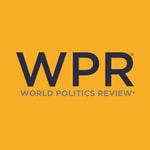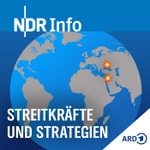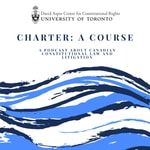World Politics Review – Details, episodes & analysis
Podcast details
Technical and general information from the podcast's RSS feed.

World Politics Review
World Politics Review
Frequency: 1 episode/17d. Total Eps: 98

Recent rankings
Latest chart positions across Apple Podcasts and Spotify rankings.
Apple Podcasts
🇩🇪 Germany - newsCommentary
22/06/2025#91🇩🇪 Germany - newsCommentary
21/06/2025#65🇫🇷 France - newsCommentary
09/05/2025#96🇫🇷 France - newsCommentary
08/05/2025#63🇬🇧 Great Britain - newsCommentary
28/03/2025#81
Spotify
No recent rankings available
Shared links between episodes and podcasts
Links found in episode descriptions and other podcasts that share them.
See all- https://twitter.com/peterdoerrie
74 shares
- https://twitter.com/SanamVakil
7 shares
RSS feed quality and score
Technical evaluation of the podcast's RSS feed quality and structure.
See allScore global : 63%
Publication history
Monthly episode publishing history over the past years.
Ethiopia, Eritrea and Tigray Are Back on a War Footing
Season 1
jeudi 27 mars 2025 • Duration 09:55
What do you think of the audio versions of articles, read by an AI-generated voice, that we've been featuring on this podcast feed of late? Our publisher wants your comments. Listen to the episode to find out where to send your thoughts.
In this briefing, originally published March 27, 2025, Fred Harter looks at the potential for fresh conflict in Ethiopia.
Ethiopia, Eritrea and Tigray Are Back on a War Footing
ADDIS ABABA, Ethiopia—A political crisis in Ethiopia’s war-battered Tigray escalated dramatically in March, bringing armed men out onto the streets and raising fears of a fresh conflict in the still-fragile region. At its heart is a power struggle between Debretsion Gebremichael, chairman of the dominant Tigray People’s Liberation Front, or TPLF, party, and Getachew Reda, Tigray’s interim regional president and Debretsion’s deputy in the TPLF.
But in the background lurks a potentially more explosive dynamic: the escalating rivalry between Ethiopia’s federal government and Eritrea, which united in the war against Tigray in 2020-2022 but fell out over the peace deal that ended it. More than two years later, tensions between the two are spiking over Ethiopia’s quest to end its status as the world’s most-populous landlocked country. ... Listen to hear the rest, or read it here:
https://www.worldpoliticsreview.com/ethiopia-eritrea-tigray-war/
The World Could Use a Crimes Against Humanity Treaty
Episode 1
mardi 25 mars 2025 • Duration 10:01
To some, Trump's seeming empowerment of both Israel and Russia, coming on the heels of former President Joe Biden's earlier failure to deter Russian aggression or use U.S. leverage with Israel to prevent the flattening of Gaza, only proves that the international rules-based order Trump is openly seeking to flout may have never been as sturdy as it seemed.
But as I put it in an interview on the American Prestige podcast last week, the rules-based order may be weaker than many may want, but it is stronger than they may think. It can even withstand efforts to break it by the U.S., which disregards rules and institutions - and permits Washington's adversaries and allies to do the same - at its peril.
To be sure, as one of the podcast's hosts pointed out, when even a U.S. president who defends the rules-based order, like Biden, fails to bring an ally that is committing crimes against humanity to heel - to say nothing of an advocate of "might makes right," like Trump, failing to do so - it certainly increases the likelihood those crimes will continue. That might appear to confirm the view that rules matter little in international affairs, even when great powers pay lip service to them.
But part of the problem is the gaps in the rules-based order itself. In this case, international law does not currently compel third parties to withhold aid from the parties to a conflict committing aggression or crimes against humanity, or come to the aid of those that are the victims of either. That should change - and it could if a Treaty on Crimes Against Humanity were adopted.
To be sure, such rules do exist with regard to genocide, which is a very specific crime defined as any one of several acts when those acts are carried out with the intent to destroy in whole or in part a national, ethnic, racial or religious group.
The Genocide Convention not only prohibits such acts - including but not limited to wilful killing, bodily harm and infliction of conditions on a group calculated to ensure their destruction - but also requires third parties to prevent and punish such acts.
This was the basis of South Africa's effort at the International Court of Justice to seek a stay of hostilities in Gaza until the court made a legal determination over whether Israel was guilty of the crime of genocide there: South Africa claimed it was required under international law to do what it could to prevent or punish what it viewed as a potential genocide, rather than to stand by.
But scholars and legal experts are split on whether Israel's atrocities in Gaza constitute genocide. A September 2024 report from the United Nations Office of the High Commissioner for Human Rights argues that Israel's actions are consistent with the characteristics of genocide. So do some rights groups and numerous legal scholars. Others have argued that the crimes fall below this threshold.
The International Court of Justice has yet to rule on the matter, while the International Criminal Court's investigation into the situation in Gaza does not include charges of genocide.
The debate as a whole underscores how high the bar is set for proving a party is guilty of genocide, largely because it is a crime of "intent." If a prosecutor can't show that the acts were undertaken with the actual intent to destroy the group as such, they don't qualify. And if they don't qualify, then third-party complicity in or incitement of these acts could not trigger criminal prosecutions under the Genocide Convention against leaders of the relevant third-party state.
And yet regardless of whether Israel's acts meet the strict definition of genocide, no observer familiar with international humanitarian law could conclude that Israel is not at minimum committing what could reasonably be p...
Macron’s Reelection Bid Just Got More Complicated
Season 1 · Episode 395
jeudi 7 avril 2022 • Duration 43:08
French President Emmanuel Macron is comfortably ahead in the polls for the first round of France’s presidential election, which takes place Sunday. With far-right candidate Marine Le Pen likely to finish second, the second-round runoff is shaping up to be a repeat of 2017.
But while Macron won in a landslide in 2017 with more than 60 percent of the vote, this time the gap is much narrower, with less than 10 percent separating Macron and Le Pen in opinion polls and the momentum clearly in Le Pen’s favor.
Macron came into office on an ambitious and popular foreign policy agenda that portrayed the European Union not as a problem, but as a solution, particularly to the pressures the country faces as a result of globalization. But Macron has often struggled to communicate his vision to the French electorate, even as he suffers from his image of being detached from the population’s everyday problems, especially the spiraling cost of living.
On this week’s episode of Trend Lines, Célia Belin, a visiting fellow in the Brookings Institution’s Center on the United States and Europe, joins Peter Dörrie to discuss how foreign policy is intersecting with electoral politics in France’s presidential election, and what a possible second term for Macron—or a first term for Le Pen—might look like.
Relevant articles:
The Making of Macron’s Worldview
For Macron, Being Right on European Strategic Autonomy Isn’t Enough
France’s Security Law Debacle Shows the Dangers of Macron’s ‘Le Pen-Lite’ Agenda
Trend Lines is produced and edited by Peter Dörrie, a freelance journalist and analyst focusing on security and resource politics in Africa. You can follow him on Twitter at @peterdoerrie.
To send feedback or questions, email us at podcast@worldpoliticsreview.com .
The International War on Waste
Season 1 · Episode 393
vendredi 25 février 2022 • Duration 29:06
Plastics, e-waste and other hazardous waste are routinely traded across borders in what amounts to an “out of sight, out of mind” approach for the rich countries that produce them. The story is more complicated for the communities that receive and dispose of the waste.
Hazardous waste poses risks to the health of local communities and the environment, spurring attempts to ban its movement across borders. But in countries like Turkey, Vietnam and Ghana, waste is often processed to extract its residual value. The important source of income it provides explains why those efforts have been of limited success and questionable usefulness.
To discuss the risks but also the complexity of the international trade of hazardous wastes, Kate O’Neill joins Peter Dörrie on Trend Lines. O’Neill is a professor at the University of California Berkeley’s Department of Environmental Science, Policy and Management, where she specializes in researching waste, the circular economy and global environmental governance.
Relevant articles on WPR:
Cuts to Waste Imports in East Asia Put Pressure on World’s Producers
Toxic Waste Spill in Ivory Coast Exposes 'Dark Underbelly' of Globalization
E-Waste Is Taking Over the World. 5G Will Make It Even Worse
Can the World Win the War on Plastic?
Trend Lines is produced and edited by Peter Dörrie, a freelance journalist and analyst focusing on security and resource politics in Africa. You can follow him on Twitter at @peterdoerrie
Young People Deserve a Say in Tackling the Crises They'll Inherit
Season 1 · Episode 392
vendredi 18 février 2022 • Duration 22:19
What would the world look like if policymakers gave priority in their decision-making to long-term consequences over short-term political expediency?
U.N. Next Generation Fellow and WPR columnist Aishwarya Machani joins Peter Dörrie on Trend Lines to discuss what the world looks like from the perspective of a young activist today and how to make young people’s voices heard in finding solutions to the crises that disproportionately affect them.
Relevant articles on WPR:
A Youth Activist Wish List to Make 2022 a Year of Breakthroughs
Young People Should Have a Say on COVID-19 Policy
Give Young Changemakers the Funding They Need
There Will Be No Pandemic Recovery Without Tackling Youth Unemployment
Getting Nuclear Nonproliferation Back on Track
Season 1 · Episode 391
vendredi 11 février 2022 • Duration 26:43
But while the NPT Review Conference is sorely needed to resolve these and a host of other outstanding problems regarding the treaty and its implementation, some observers welcomed the postponement, as it gives state parties more time to bridge some of their stark disagreements over the best way forward.
To discuss these issues and more, Miles Pomper, a senior fellow at the James Martin Center for Nonproliferation Studies at the Middlebury Institute of International Studies at Monterey, joins Peter Dörrie on Trend Lines.
Relevant articles on WPR:
NATO’s Nuclear Deterrent Gets a Reprieve—for Now
The U.S. Should Rethink Its Approach to Reviving the Iran Nuclear Deal
China’s Nuclear Build-Up Could Make for a More Dangerous Future
China’s Military Buildup Is Challenging U.S. Deterrence in Asia
Season 1 · Episode 390
vendredi 4 février 2022 • Duration 26:42
This strategy is squarely aimed at undermining the U.S. military’s preeminence in the region, which until now has served as a counterweight to China’s claims of sovereignty over large swathes of ocean in its immediate neighborhood, containing both valuable natural resources and some of the busiest shipping lanes in the world. And hovering over it all is the threat that China’s military ambitions pose to Taiwan.
Timothy Heath, senior defense researcher at the RAND corporation in Washington, joins Peter Dörrie on Trend Lines to discuss the implications and unintended consequences of China’s military modernization.
Relevant Articles on WPR:
The U.S.-China Rivalry According to China
The U.S. Faces Hard Choices on Strategic Ambiguity in Europe and Asia
The U.S. Should Compete With China and Russia—but Wisely
South Korea Has Quietly Taken Sides in the U.S.-China Rivalry
2022 Is Shaping Up to Be a Year of Living Dangerously
Season 1 · Episode 389
vendredi 14 janvier 2022 • Duration 26:39
Around the world in recent years, the enthusiastic embrace of globalization has given way to a backlash against liberalized trade. Since the start of the coronavirus pandemic, that shift toward a generalized closure, both between and within nations, has become almost a default setting, on display in everything from governments’ rush to close borders in response to new variants to hyperpartisan politics that turns policy debates into trench warfare.
Meanwhile, the pandemic, combined with climate change, has only created added urgency among younger generations to ensure that questions of intergenerational equity are made central to how we address both crises. And all of this is unfolding against the backdrop of an international order in which the taboo against interstate conflict is increasingly fraying.
If there is one reason for hope, it lies in humankind’s resilience and the tendency of all historical developments to set in motion countervailing forces that cause the pendulum once again to swing back in the opposite direction. WPR’s editor-in-chief Judah Grunstein joins Peter Dörrie to discuss the trends that will shape international politics in 2022.
Relevant Articles on WPR:
- Making Sense of a Year of Contradictions
- The West’s Border Closure Reflex Comes With a Cost
- A Youth Activist Wish List to Make 2022 a Year of Breakthroughs
- Putin Wants to Rewrite the End of the Cold War
- Globalization’s Perverse Convergence
Trend Lines is produced and edited by Peter Dörrie, a freelance journalist and analyst focusing on security and resource politics in Africa. You can follow him on Twitter at @peterdoerrie.
Rerun: Ali Wyne on the State of U.S.-China Relations
Season 1 · Episode 388
jeudi 30 décembre 2021 • Duration 55:47
Earlier this month, senior U.S. and Chinese trade negotiators held a virtual round of talks to discuss concerns over the state of bilateral commercial ties. The meeting came after U.S. Trade Representative Katherine Tai said in public remarks that she would seek “frank conversations” with her Chinese counterpart “that will include discussion over China’s performance under the phase-one agreement,” which was negotiated under former President Donald Trump. The Chinese said they pressed Tai to cancel the tariffs that were imposed by Trump and which so far remain in effect under President Joe Biden.
The dynamic around these talks says a lot about the current state of relations between Washington and Beijing. This week on the Trend Lines podcast, WPR’s Elliot Waldman digs into these issues with Ali Wyne, a senior analyst with the Global Macro practice at the Eurasia Group, a political risk consultancy. He writes frequently about the U.S.-China relationship, including for WPR.
If you would like to request a full transcript of the episode, please send an email to podcast@worldpoliticsreview.com.
Relevant Articles on WPR:
-
Competition With China Shouldn’t Dictate U.S. Foreign Policy
-
China’s Economic Slowdown Is the Price of Tackling Long-Term Risk
-
The U.S. and China Are Both Failing the Global Leadership Test
-
The AUKUS Deal Is a Clarifying Moment for Biden’s Foreign Policy
Trend Lines is produced and edited by Peter Dörrie, a freelance journalist and analyst focusing on security and resource politics in Africa. You can follow him on Twitter at @peterdoerrie.
To send feedback or questions, email us at podcast@worldpoliticsreview.com.
Rerun: The End of Asylum?
Season 1 · Episode 387
mercredi 29 décembre 2021 • Duration 32:50
According to article 14 of the 1948 Universal Declaration of Human Rights, “Everyone has the right to seek and to enjoy in other countries asylum from persecution.” But that promise, which was enshrined three years later in the 1951 Refugee Convention, has never been completely honored. In fact, it has been progressively eroded in recent years across the Global North, even as the numbers of refugees and asylum-seekers around the world have swelled.
Just last month, the Parliament of Denmark passed a law allowing it to relocate asylum-seekers outside Europe while their claims are being processed. A similar measure is under consideration in the United Kingdom, while Australia has long maintained such a policy. Here in the United States, former President Donald Trump’s administration enacted a policy known as “Remain in Mexico,” under which asylum-seekers were forced to wait across the border in Mexico, often in unsafe environments, while their claims were processed.
Today on Trend Lines, Khalid Koser, executive director of the Global Community Engagement and Resilience Fund, joins WPR’s Elliot Waldman to discuss the past, present and potential future of the right to asylum, and what it might take to revive this critical component of the international legal system. If you would like to request a full transcript of the episode, please send an email to podcast@worldpoliticsreview.com.
If you like what you hear on Trend Lines and what you’ve read on WPR, you can sign up for our free newsletter to get our uncompromising analysis delivered straight to your inbox. The newsletter offers a free preview article every day of the week, plus three more complimentary articles in our weekly roundup every Friday. Sign up here. Then subscribe.
Relevant Articles on WPR:
Trend Lines is produced and edited by Peter Dörrie, a freelance journalist and analyst focusing on security and resource politics in Africa. You can follow him on Twitter at @peterdoerrie.
To send feedback or questions, email us at podcast@worldpoliticsreview.com.








